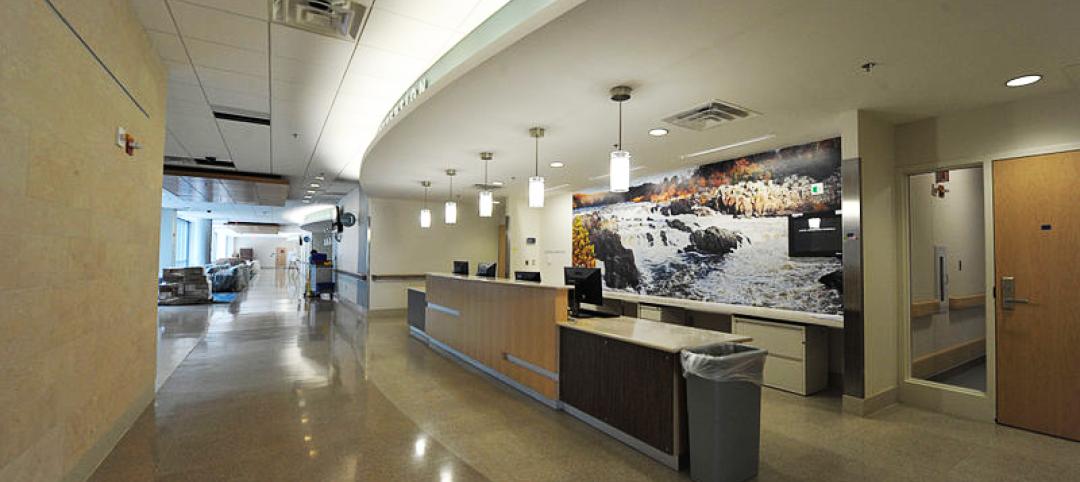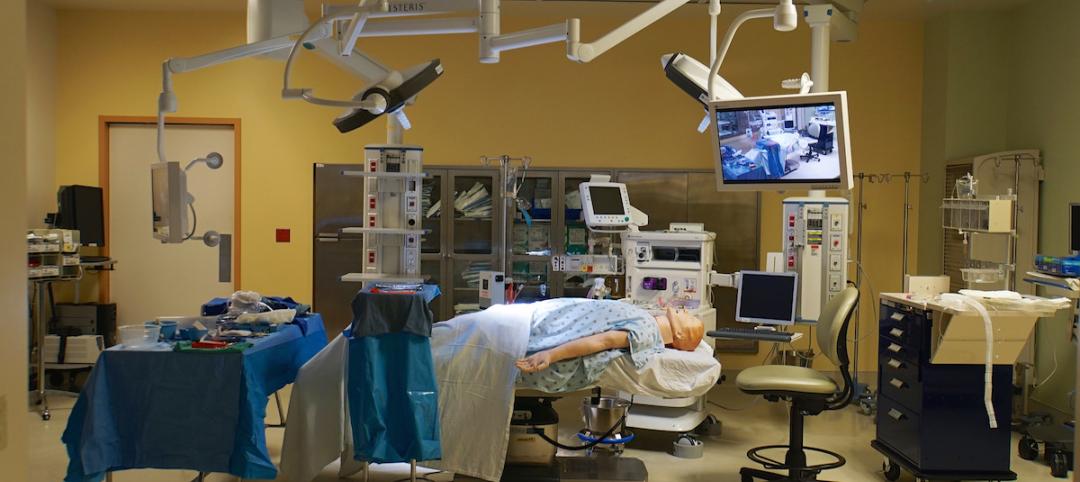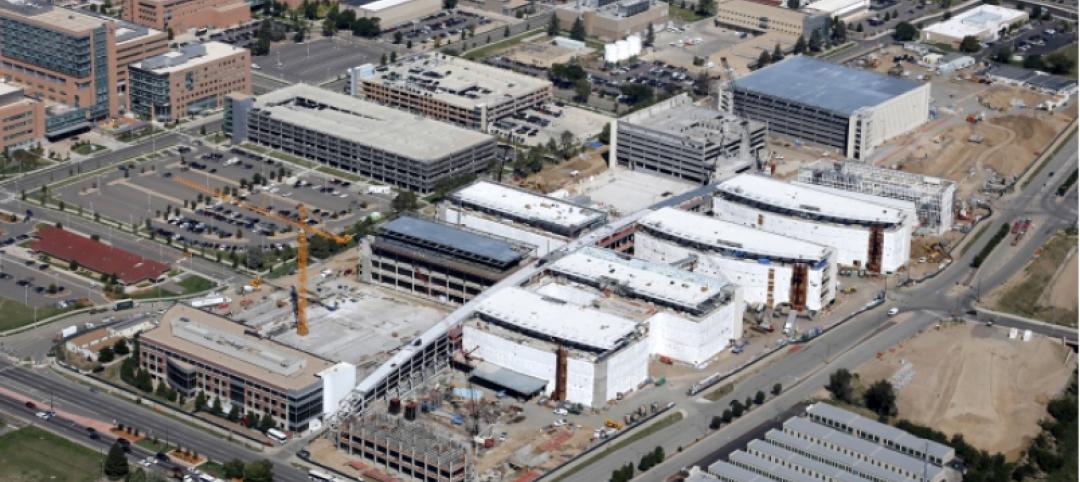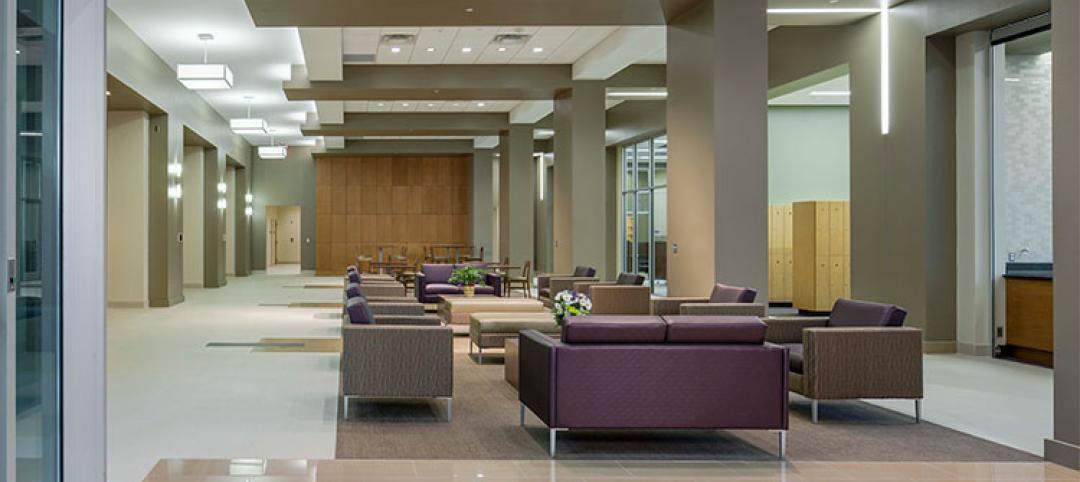The University of Pennsylvania’s new $1.5 billion hospital, dubbed the Pavilion, is the largest capital project in Penn’s history. It will be Philadelphia’s most sophisticated healthcare building.
The Pavilion is being built on Penn Medicine’s West Philadelphia campus. It will create a new public square and focal point for the surrounding buildings to anchor the health system. Not only is the new hospital designed to deliver the best care to patients based on current standards, but it will also have the ability to quickly adapt to any advancements that occur over the next few decades.
About 500 new private patient rooms and 47 operating/interventional rooms are included in the 1.5 million-sf, 17-story facility. A network of public bridges and walkways will link the Pavilion to the Hospital of the University of Pennsylvania and the adjacent Perelman Center for Advanced Medicine. It will also be connected to the nearby train station.
The hospital is broken down into smaller neighborhoods meant to provide a sense of community. Patients and employees will have access to plentiful daylight and landscaped views. Each patient room also has the ability to be personalized by patients and visitors.
Some of the highlights of the Pavilion include:
— Long term flexibility incorporated into the design so patient rooms can be adapted and changed over time with minimal impact to the building fabric. All the private patient rooms are uniform so the right care can be brought to them, which makes the hospital design flexible both today and into the future.
— Future in-room technologies that will strengthen communication between patients, families, and care teams provide for educational programming, and enhance multi-nodal physician consultation are all anticipated for the patient rooms.
— An environmentally conscious design, construction and operational plan for the Pavilion fortifies Penn’s commitment to the environment. The design includes innovations like the re-use of water, 100 percent outside air, optimized access to daylight, outdoor green space for patients, families and staff, and ultimately a high performance building envelope and mechanical systems.
The Pavilion Build Team consists of healthcare design firm HDR, international architect Foster + Partners, engineering designer BR+A, construction management expert L.F. Driscoll and Balfour Beatty, and Penn Medicine’s clinical and facilities experts. The hospital is scheduled for completion in 2021.
Related Stories
Healthcare Facilities | Dec 29, 2015
Wood materials aid in patient recovery in healthcare environments
Report says patient recovery times, pain perception, stress levels improve where natural materials are present.
Healthcare Facilities | Dec 15, 2015
What the Bipartisan Budget Act of 2015 means for healthcare real estate development
CBRE Healthcare's Charles Maggio breaks down the impacts of the new legislation, which affects outpatient facilities.
Greenbuild Report | Dec 10, 2015
Sustainable performance: Hospital systems’ new financial and marketing imperative
Several years ago, the healthcare industry would have ranked in the bottom tier among adopters of sustainable design and construction. Now, it is outpacing other nonresidential sectors in moving toward high-performance, healthy environments.
Healthcare Facilities | Dec 2, 2015
Check out Perkins+Will’s ultra-transparent research center for the Allen Institute for Brain Science
The design orients labs like flower petals around a large light-filled central atrium; the effect is like the inside of a bee hive where researchers can see each other and what they are doing.
Healthcare Facilities | Nov 6, 2015
Paint company unveils product that can kill bacteria in hospitals
The new product from Sherwin-Williams, called Paint Shield, is said to not only kill over 99.9% of dangerous bacteria, but also reduces growth of “common microbes.”
Healthcare Facilities | Nov 4, 2015
Hospital designers get the scoop on the role of innovation in healthcare
“Innovation” was the byword as 175 healthcare designers gathered in Chicago for the American College of Healthcare Architects/AIA Academy of Architecture for Health Summer Leadership Summit.
Healthcare Facilities | Nov 2, 2015
Final funding comes through to complete over-budget and behind-schedule Denver VA Medical Center
The Department of Veterans Affairs, cited for its mismanagement, is stripped of control over future major construction.
Healthcare Facilities | Oct 23, 2015
Mortenson study: Healthcare providers optimistic, but want changes to Affordable Care Act
The 2015 Mortenson Healthcare Industry Study found that 76% of providers are at least optimistic about the future of healthcare, but eight out of 10 would like to see changes made to ACA.
Healthcare Facilities | Sep 29, 2015
The ever changing physician real estate market
In the United States, the environment where outpatient healthcare is being delivered is as dynamic and diverse as the more high profile office and retail markets, writes CBRE Healthcare's Nelson Udstuen.
Healthcare Facilities | Sep 21, 2015
5 reasons healthcare organizations are implementing finish standards on construction projects
The desire for improved patient satisfaction, staff retention, and turn-key maintenance are among the top reasons more healthcare groups are implementing finish standards in their spaces, according to VOA Associates' Lauren Andrysiak.

















